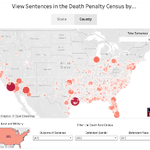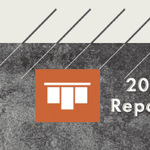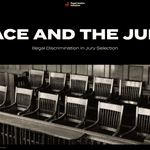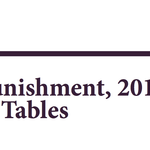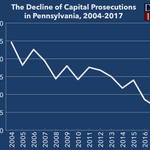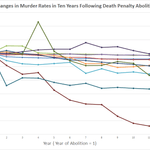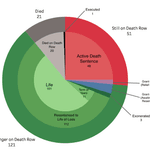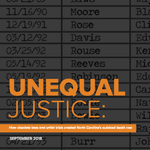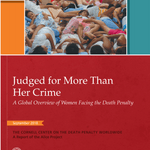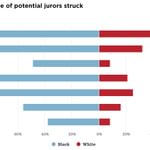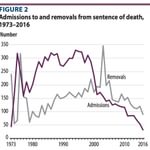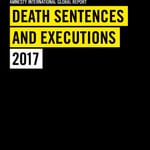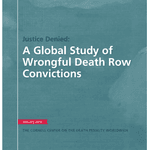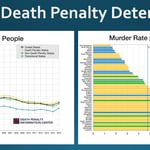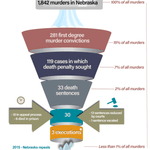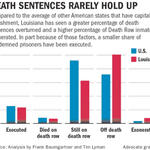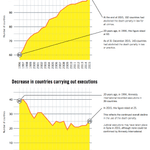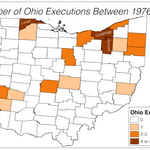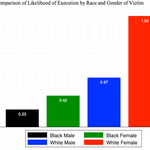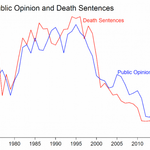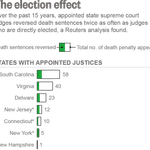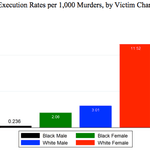美国司法体系的弊端
https://deathpenaltyinfo.org/resources/publications-and-testimony/studies/p6?amp;scid=19&did=220
Jul 24, 2024
New Study Finds Evidence of Racial Bias in California Death Sentences As Resentencings Begin in Cases Tainted by Discriminatory Jury Selection
As Alameda County District Attorney Pamela Price seeks to remedy her office’s history of discriminatory jury selection, an study published in the 2024 Journal of Empirical Legal Studies by Catherine M. Grosso, Jeffrey Fagan, and Michael Laurence finds empirical evidence that the race of the defendant and the race of the victim affect the likelihood of a death sentence being imposed in…
READ MOREFeb 16, 2024
Black History Month Profile Series: Jennifer Eberhardt
This month, DPIC celebrates Black History Month with weekly profiles of notable Black Americans whose work affected the modern death penalty era. The second in the series is Professor Jennifer…
READ MOREFeb 28, 2023
NEW RESOURCES: Interactive Display Illustrates Conditions on Death Row
A joint research project begun by two Texas universities illustrates the confinement conditions of death-row prisoners, including areas such as visitation, health care, attorney visits, recreation, food, and opportunities for work. The Capital Punishment & Social Rights Research Initiative has created an initial infographic describing the conditions in…
READ MORESep 30, 2022
Report: Black People 7.5 Times More Likely to Be Wrongfully Convicted of Murder than Whites, Risk Even Greater if Victim was White
Black people are about 7½ times more likely to be wrongfully convicted of murder in the U.S. than are whites, and about 80% more likely to be innocent than others convicted of murder, according to a new report by the National Registry of Exonerations. The already disproportionate risk of wrongful conviction, the Registry found, was even worse if the murder victim in a case was…
READ MORESep 23, 2022
North Carolina ACLU Challenges Death Qualification of Jurors as Racially and Sexually Discriminatory
Lawyers for a North Carolina capital defendant have filed a sweeping challenge to the method by which death-penalty jurors are empaneled, arguing that the combination of a process known as ?“death qualification” and discretionary jury strikes produces a jury so racially and sexually unrepresentative that it violates a defendant’s right to a fair…
READ MORESep 12, 2022
As the Lone Star State Conducts 400th White-Victim Execution, Study Shows Black Lives Matter Less in Texas Capital Cases
A new study of the Texas death penalty, released as the state was conducting its 400th modern-era execution in a case involving a white victim, has documented overwhelming racial disparities in the Lone Star state’s capital punishment…
READ MOREAug 29, 2022
Report: Racial Disparities in Death Sentences Imposed on Late Adolescent Offenders Have Grown Since Supreme Court Ruling Banning Juvenile Death Penalty
Racial disparities in U.S. death sentences imposed on late adolescent offenders have grown substantially since the U.S. Supreme Court struck down the use of capital punishment against juvenile offenders in 2005, according to a new report by University of North Carolina political scientist Frank R. Baumgartner…
READ MOREJul 20, 2022
New DPIC Podcast: The Death Penalty Census
Data from fifty years of the modern U.S. death penalty reveal ?“a system that is rife with error, filled with discrimination, [and] very, very difficult to fairly administer,” Death Penalty Information Center Executive Director Robert Dunham says in the July episode the Discussions with DPIC podcast. The episode, a discussion between Dunham and 2021 – 2022 DPIC Data Fellow Aimee Breaux about the launch of DPIC’s groundbreaking Death Penalty Census database, was released July 20,…
READ MOREApr 04, 2022
New DPIC Podcast: Prof. Meredith Rountree on What Influences Death Penalty Jurors’ Moral Decision Making
In the March 2022 episode of Discussions With DPIC, Northwestern Pritzker School of Law Senior Lecturer Meredith Rountree speaks with Death Penalty Information Center Executive Director Robert Dunham about her study of the types of evidence that influence juror decision-making at the sentencing stage of capital…
READ MOREJan 13, 2022
New Study: Kentucky Death Penalty Racially Biased, Arbitrary, Error Prone
Kentucky?’s death penalty is racially discriminatory, geographically arbitrary, and riddled with systemic flaws, a new study of the commonwealth’s use of capital punishment has…
READ MOREDec 17, 2021
“Right Too Soon” Study: One in Seven Prisoners Put to Death in U.S. Had Legal Issues that Make Their Executions Unconstitutional
At least one in seven death-row prisoners put to death in the United States since executions resumed in 1977 had legal claims in their cases that would render their executions unconstitutional, a new Cornell University Law School study…
READ MOREOct 07, 2021
Report: More Women Serving Extreme Sentences in the United States
The number of women serving extreme sentences in the United States has increased sharply in the last decade, a September 2021 report by a collaborative of criminal law reform organizations has…
READ MOREAug 06, 2021
DPIC Analysis: 13 Exonerated in 2020 From Convictions Obtained by Wrongful Threat or Pursuit of the Death Penalty
A Death Penalty Information Center analysis of data from the National Registry of Exonerations has found that law enforcement use or threat of capital prosecution against suspects or witnesses contributed to the wrongful convictions of 10% of the people exonerated in the United States and more than one-fifth of all murder exonerations in…
READ MOREAug 03, 2021
Equal Justice Initiative Releases Report on Racial Discrimination in Jury Selection
Racial bias in jury selection is compromising the ?“credibility, reliability, and integrity of the legal system,” and its effects are especially pronounced in death penalty cases, a new report from the Equal Justice Initiative (EJI) has…
READ MOREMar 26, 2021
Georgia Supreme Court Asked to Overturn ?‘Nearly Impossible’ Evidentiary Burden of Proving Intellectual Disability
The Georgia Supreme Court is considering a challenge to the uniquely high burden of proof the state imposes on capital defendants and death-row prisoners to determine whether they are ineligible for the death penalty because of intellectual disability. On March 23, 2021, the court heard argument in a case brought by Rodney Young, a death-row prisoner who asserts that Georgia’s harsh standard unconstitutionally subjects defendants with intellectual disability…
READ MOREOct 08, 2020
Report Finds Rampant Government Misconduct in Death-Row Exonerations, Especially in Cases with Black Defendants
A new report by the National Registry of Exonerations has found that police or prosecutorial misconduct is rampant in death-row exoneration cases and occurs even more frequently when the wrongfully death-sentenced exoneree is…
READ MOREOct 07, 2020
Groundbreaking ?‘Racist Roots’ Project Exposes Racism Endemic in North Carolina’s Death Penalty
North Carolina?’s death penalty is a weapon of social control rooted in a racist past. That is the message of a groundbreaking new collaborative project, Racist Roots: Origins of North Carolina’s Death Penalty, by the Durham-based defense organization Center for Death Penalty Litigation…
READ MOREOct 05, 2020
Bureau of Justice Statistics, NAACP Legal Defense Fund Reports Document Ongoing Decline of U.S. Death-Row Population
The Department of Justice Bureau of Justice Statistics (BJS) and the NAACP Legal Defense and Educational Fund, Inc. (LDF) have issued new reports documenting the continuing historic decline of the death penalty across the United…
READ MORESep 21, 2020
Study Finds Defendants Accused of Killing White Women Are 3 Times More Likely to be Sentenced to Death in Texas
A study of 40 years of Texas death sentences has found that the likelihood that a defendant accused of a death-eligible murder will be sentenced to death is three times greater if the case involves a white female…
READ MORESep 04, 2020
California Legislature Passes Racial Justice Package Affecting Death-Penalty Practices
In the closing days of its 2020 legislative session, the California legislature passed a trio of racial justice reform bills expected to reduce the influence of racial, ethnic, and socioeconomic bias in the administration of the death penalty in the state with the country’s largest death…
READ MOREJun 12, 2020
Study: Dehumanizing Belief Systems Linked to Support for Gun Rights, the Death Penalty, and Anti-Immigration Practices
A new study in the Proceedings of the National Academy of Sciences has documented a strong link between individuals who hold dehumanizing belief systems and support for capital…
READ MOREApr 22, 2020
Amnesty International Report: Confirmed Executions and Death Sentences Continue Global Decline, But Secrecy Hinders Accurate Assessment of Trends
Executions across the globe fell 5% worldwide in 2019 to the fewest in more than a decade, despite a record number of executions in Saudi Arabia, Amnesty International reported in the human rights organization’s Global Report: Death Sentences and Executions in…
READ MOREApr 03, 2020
2019 Exoneration Report: Official Misconduct and Perjury Remain Leading Causes of Wrongful Homicide Convictions
Official misconduct and perjury or false accusation continue to be the main reasons innocent men and women are wrongfully convicted in America, according to the 2019 annual report by the National Registry of Exonerations. That misconduct, the report indicates, is most prevalent in cases involving the most serious criminal…
READ MOREApr 02, 2020
STUDIES — Junk Psychological Science Continues to Infect Death-Penalty Determinations
Courts are failing badly in keeping junk psychological science out of the courtroom in criminal cases, permitting the admission of psychological tests that have never been reviewed for reliability and others that have been found unreliable, a recent study reports. Among the problematic tests, another group of psychologists write, is a ?“psychopathy checklist” commonly used by prosecutors to argue that a defendant poses a future danger to society and should be sentenced to…
READ MOREMar 13, 2020
DPIC Analysis: Exoneration Data Suggests Non-Unanimous Death-Sentencing Statutes Heighten Risk of Wrongful Convictions
Capital sentencing schemes that permit judges to impose a death sentence despite the votes of one or more jurors for life create a heightened risk that an innocent person will be wrongfully convicted and sentenced to death, according to a new Death Penalty Information Center analysis of death-row exoneration…
READ MOREFeb 24, 2020
Report: Failure to Implement Reforms Undermines Legitimacy of Kentucky’s Death-Penalty System
Nine years after an American Bar Association (ABA) study identified systemic deficiencies in Kentucky’s administration of its death-penalty laws, a new report by past and current Kentucky public defenders charges that the Commonwealth’s failure to take any meaningful remedial action undermines the legitimacy of capital punishment in the…
READ MOREJan 02, 2020
Report Addresses Death-Row Family Members’ Barriers to Mental Health Care
Families who have a loved one on death row, or who have experienced the execution of a loved one, suffer a variety of adverse mental health effects, including depression, anxiety, and Post-Traumatic Stress Disorder (PTSD), according to a new report by the Texas After Violence Project (TAVP). The report, Nobody to Talk to, describes the mental health challenges faced by family members of death row prisoners and the special difficulties those family members experience in seeking mental health…
READ MORESep 18, 2019
Study Finds Staggering Race-of-Victim Disparities in Georgia Executions and that the Death-Penalty Appeals Process Makes Them Worse
Defendants convicted of killing white victims in Georgia are 17 times more likely to be executed than those convicted of murdering black victims, a new study by researchers at the University of Denver has found, and the problem of discrimination is worsened by the appeal…
READ MOREJul 18, 2019
Philadelphia District Attorney Asks Pennsylvania Supreme Court to Strike Down State’s Death Penalty
Citing race disparities, ineffective representation by court-appointed lawyers, and arbitrary case outcomes, the Philadelphia District Attorney’s Office has asked the Pennsylvania Supreme Court to strike down the state’s death penalty. In a brief filed on July 15, 2019 in the consolidated appeals of Philadelphia death-row prisoner Jermont Cox and Northumberland County?’s Kevin Marinelli, the District…
READ MOREMay 13, 2019
Science Challenges Myth that Death Penalty Brings Victims’ Families Closure
Proponents of capital punishment have long argued for the death penalty on the grounds that it brings closure to family members of homicide victims. But science suggests that achieving closure through execution may be a myth, says family and child therapist Linda Lewis Griffith (pictured) in a May 6, 2019 column in the San Luis Obispo Tribune, and that capital punishment may actually make matters…
May 10, 2019
Study Finds Louisiana Spends An Extra $15 Million Per Year on Death Penalty
A new study of Louisiana?’s death penalty reports that the state’s capital punishment system costs taxpayers at least $15.6 million a year more than a system with life without parole as the maximum sentence. The study by retired New Orleans district Chief Judge Calvin Johnson (pictured, left) and Loyola Law Professor William Quigley (pictured, right), released on May 2, 2019, found that Louisiana has spent more than $200 million on its…
READ MOREMar 26, 2019
Researcher — Capital Sentencing Evidence Shows Death Penalty Race Bias is Real
For decades, studies have shown persistent racial disparities in the administration of capital punishment. Saying ?“death sentences are unevenly and unfairly applied based on race,” California Governor Gavin Newsom on March 13, 2019 imposed a moratorium on executions in the state with the nation’s largest death row. Responding to the governor’s moratorium In an op-ed for the Los Angeles Times, Stanford psychology professor…
READ MOREMar 07, 2019
Study Reports More Than Three-Fold Drop in Pursuit of Death Penalty by Pennsylvania Prosecutors
A new study of fourteen years of Pennsylvania murder convictions has documented a sharp decline in county prosecutors’ use of capital punishment across the Commonwealth. After examining the court files of 4,184 murder convictions from 2004 to 2017, the Allentown Morning Call found that Pennsylvania prosecutors sought the death penalty at more than triple the rate (3.3) at the start of the study period than they did fourteen years later — a drop of more than 70%. In…
READ MOREJan 03, 2019
Study: International Data Shows Declining Murder Rates After Abolition of Death Penalty
Nations that abolish the death penalty then tend to see their murder rates decline, according to a December 2018 report by the Abdorrahman Boroumand Center, a Washington, DC-based organization that promotes human rights and democracy in Iran. The report examined murder rates in 11 countries that have abolished capital punishment, finding that ten of those countries experienced a decline in murder rates in the decade following abolition. Countries were included if they met the following…
READ MORENov 16, 2018
DPIC Analysis: The Decline of the Death Penalty in Philadelphia
During his election campaign, Philadelphia District Attorney Larry Krasner described the economic wastefulness of city prosecutors’ pursuit of the death penalty as ?“lighting money on fire.” A DPIC analysis of the outcomes of the more than 200 death sentences imposed in the city since 1978 (click here to enlarge image) and the last seven years of capital prosecution outcomes provides strong support for Krasner’s…
READ MOREOct 24, 2018
Study: Racial Disparities in Death Penalty Begin with Investigations and Arrests
A study of more than three decades of homicide arrests suggests that racial disparities in arrests and policing practices introduce an additional layer of bias in the application of the death penalty in the United…
READ MOREOct 16, 2018
73% of North Carolina’s Death Row Sentenced Under Obsolete Laws, New Report Says
Most of the 142 prisoners on North Carolina?’s death row were convicted under obsolete and outdated death-penalty laws and would not have been sentenced to death if tried today, according to a new report by the Center for Death Penalty Litigation. The report by the Durham-based defense organization, titled Unequal Justice: How Obsolete Laws and Unfair Trials Created North Carolina’s Outsized Death Row, says that nearly three-quarters of the prisoners…
READ MORESep 21, 2018
“Judged for More Than Her Crime”: New Report Examines Worldwide Use of Death Penalty Against Women
Women face ?“widespread discriminatory practices in the capital prosecution and detention” in death-penalty countries around the world, according to a new report by the Cornell Center on the Death Penalty Worldwide and the World Coalition Against the Death Penalty. The report, Judged for More Than Her Crime: A Global Overview of Women Facing the Death Penalty—released at the United Nations in Geneva, Switzerland on September 18, 2018 — examines the use…
READ MORESep 20, 2018
DEATH-ROW CENSUS: Number of Prisoners Facing Active Death Sentences in U.S. Drops Below 2,500
For the first time in more than a quarter century, fewer than 2,500 prisoners across the United States now face active death sentences. According to the latest Death Row USA national census by the NAACP Legal Defense Fund (LDF), released in early September 2018, 2,743 people were on death rows in 32 states and the U.S. federal and military death rows on April 1, 2018. That total includes 249 people who were previously sentenced to death but face the possibility of a capital resentencing after…
READ MORESep 13, 2018
New DPIC Podcast: Researcher Discusses Implications of Link Between Economic Threats and Support for Death Penalty
In the latest episode of our Discussions with DPIC podcast, Keelah Williams (pictured), assistant professor of psychology at Hamilton College in New York, joins DPIC executive director Robert Dunham to discuss the implications of new research on the death penalty and resource…
Aug 28, 2018
Amnesty International Issues Report on the Death Penalty in Florida
A new report by Amnesty International says Florida?’s approach to redressing the nearly 400 unconstitutional non-unanimous death sentences imposed in the state has deepened its status as an outlier on death-penalty issues by ?“add[ing] an extra layer of arbitrariness to [the state’s] already discriminatory and error-prone capital justice…
READ MOREAug 27, 2018
New Study Finds Link Between Perception of Resource Scarcity and Support for Death Penalty
A new study by an interdisciplinary team of Arizona State University psychology researchers has found a link between the actual and perceived scarcity of resources and support for capital punishment. The study, currently in press but available online on August 10 in the science journal, Evolution and Human Behavior, discovered that countries with greater resource scarcity were more likely to have a death penalty, as were U.S. states with lower per capita…
READ MOREAug 22, 2018
NEW RESOURCES: Capital Punishment and the State of Criminal Justice 2018
The American Bar Association’s Criminal Justice Section has released its annual report on issues, trends, and significant changes in America’s criminal justice system. The new publication, The State of Criminal Justice 2018, includes a chapter by Ronald J. Tabak, chair of the Death Penalty Committee of the ABA’s Section of Civil Rights and Social Justice, describing significant death penalty cases and capital punishment developments over the past…
READ MOREAug 02, 2018
New Podcast: Authors of Tennessee Death-Penalty Study Discuss Arbitrariness
The latest edition of Discussions with DPIC features H.E. Miller, Jr. and Bradley MacLean, co-authors of a recent study on the application of Tennessee’s death penalty. Miller and MacLean describe the findings from their article, Tennessee’s Death Penalty Lottery, in which they examined the factors that influence death-penalty decisions in the…
READ MOREJul 11, 2018
STUDY: The Death Penalty in Tennessee is ?“a Cruel Lottery”
A new study of Tennessee’s death penalty concludes that the state’s capital-punishment system is ?“a cruel lottery” that is ?“riddled with…
READ MOREJun 27, 2018
STUDY: Tennessee Could Save $1.4 Million Annually Ending Death Penalty for Severe Mental Illness
Tennessee could save an estimated $1.4 – 1.89 million per year by adopting a ban on capital punishment for defendants with severe mental illness, according to a new report by the American Bar Association Death Penalty Due Process Review Project. The report said a severe mental illness death-penalty exclusion ?“could result in cost savings [because] a subset of individuals who currently could face expensive capital prosecutions and decades of appeals would become…
READ MOREJun 26, 2018
Report Finds Systemic Flaws, Recommends Major Reforms in Pennsylvania Death Penalty
Pennsylvania?’s death-penalty system is seriously flawed and in need of major reform, according to a report released June 25, 2018, by the Pennsylvania Task Force and Advisory Committee on Capital Punishment. The bipartisan task force and advisory committee — which consisted of legislators, prosecutors, defense attorneys, police chiefs, judges, and victims’ advocates — began work in 2012 and examined 17 issues related to the Commonwealth’s death penalty. Their years-long…
READ MOREJun 15, 2018
STUDY: Local Mississippi Prosecutors Struck Black Jurors at More than Four Times the Rate of Whites
A new study shows that the Mississippi District Attorney’s office that has prosecuted Curtis Flowers for capital murder six times — striking almost all black jurors in each trial — has disproportionately excluded African Americans from jury service for more than a quarter century. Reviewing the exercise of discretionary jury strikes in 225 trials between 1992 and 2017, American Public Media Reports discovered that during the tenure of Mississippi’s Fifth Circuit…
READ MOREMay 23, 2018
STUDY: Pervasive Rubberstamping by State Courts Undermines Legitimacy of Harris County, Texas Death Sentences
State-court factfinding by judges in Harris County, Texas death-penalty cases is ?“a sham” that ?“rubberstamps” the views of county prosecutors, according to a study of the county’s capital post-conviction proceedings published in the May 2018 issue of the Houston Law Review. In The Problem of Rubber Stamping in State Capital Habeas Proceedings: A Harris County Case Study, researchers from the University of Texas School of Law Capital…
READ MOREMay 11, 2018
STUDIES: Death-Penalty Jury Selection ?“Whitewashes” Juries and is Biased Towards Death
As support for the death penalty has declined in America, the process of ?“death-qualification” — which screens potential jurors in death-penalty cases based upon their views about capital punishment — produces increasingly unrepresentative juries from which African Americans are disproportionately excluded and, according to a new study by researchers at the University of California, increasingly biases juries in favor of conviction and death…
READ MOREMay 08, 2018
NEW RESOURCES: BJS Releases ?“Capital Punishment, 2016”
The nation’s death rows continue to shrink more rapidly than new defendants are being sentenced to death, according to the Bureau of Justice Statistics (BJS) statistical brief, ?“Capital Punishment, 2016,” released April 30, 2018. (Click image to enlarge.) The statistical brief, which analyzes information on those under sentence of death in the United States as of December 31, 2016, contains official government figures documenting continuing declines in executions, new death…
READ MOREApr 26, 2018
DPIC Study Shows 97% of Prisoners Who Overturn Pennsylvania Death Sentences Are Not Resentenced to Death
In Pennsylvania, death-row prisoners whose convictions or death sentences are overturned in state or federal post-conviction appeals are almost never resentenced to death, a new Death Penalty Information Center study has revealed. Since Pennsylvania adopted its current death-penalty statute in September 1978, post-conviction courts have reversed prisoners’ capital convictions or death sentences in 170 cases. Defendants have faced capital retrials or resentencings in 137 of those cases, and…
READ MOREApr 12, 2018
Amnesty International Report: Death Penalty Use Down Worldwide in 2017
Use of the death penalty declined worldwide in 2017, according to the Amnesty International’s annual global report on capital…
READ MOREMar 12, 2018
Global Study Highlights Systemic Risks of Wrongful Capital Convictions
“In 2016, at least 60 prisoners were exonerated after having been condemned to death, in countries across the geographical and political spectrum,” according to a new report on wrongful capital convictions by the Cornell Center on the Death Penalty Worldwide. The report, Justice Denied: A Global Study of Wrongful Death Row Convictions, analyzes risk factors for executing the innocent that are endemic in death penalty cases irrespective of where they are tried, and…
READ MOREDec 12, 2017
Report: Deterrence is Based on Certainty of Apprehension, Not Severity of Punishment
The certainty of apprehension, not the severity of punishment, is more effective as a deterrent. So argues Daniel S. Nagin (pictured), one of the nation’s foremost scholars on deterrence and criminal justice policy, in his chapter on Deterrence in the recently released Academy for Justice four-volume study, Reforming Criminal Justice. Reviewing deterrence scholarship since the 1960s and five leading studies from the past two decades, Dr.
READ MORESep 12, 2017
NEW PODCAST: DPIC Study Finds No Evidence that Death Penalty Deters Murder or Protects Police
A Death Penalty Information Center analysis of U.S. murder data from 1987 through 2015 has found no evidence that the death penalty deters murder or protects police. Instead, the evidence shows that murder rates, including murders of police officers, are consistently higher in death-penalty states than in states that have abolished the death penalty. And far from experiencing increases in murder rates or open season on law enforcement, the data show that states that have abolished the death…
READ MOREAug 01, 2017
NEW RESOURCES: Capital Punishment and the State of Criminal Justice 2017
The American Bar Association has released a new publication, The State of Criminal Justice 2017, an annual report examining major issues, trends, and significant changes in America’s criminal justice system. In a chapter devoted to capital punishment, Ronald J. Tabak, chair of the Death Penalty Committee of the ABA’s Section of Individual Rights and Responsibilities, describes significant death penalty cases and developments over the past year. Tabak…
READ MOREJul 17, 2017
Report Finds High Levels of Misconduct in Four Top Death Sentencing Counties
Four counties that rank among the most aggressive users of capital punishment in the United States have prolonged patterns of prosecutorial misconduct, according to a new report by the Harvard-based Fair Punishment Project. The report, ?“The Recidivists: Four Prosecutors Who Repeatedly Violate the Constitution,” examined state appellate court decisions in California, Louisiana, Missouri, and Tennessee from 2010 – 2015, and found that prosecutors in Orange County, CA;…
READ MOREJul 03, 2017
Equal Justice Initiative Report on Lynchings Outside the Deep South Suggests Links to Capital Punishment
Lynching has long been regarded as a regional phenomenon, but in an updated edition of its landmark 2015 report ?“Lynching in America: Confronting the Legacy of Racial Terror,” the Equal Justice Initiative (EJI) has now documented more than 300 lynchings of African Americans in states outside the Deep South. ?“Racial terror lynching was a national problem,” said EJI Director Bryan Stevenson (pictured). More than six million African American migrants fled ?“as refugees and exiles…
READ MOREMay 19, 2017
STUDY: Juries Have Never Found Anyone Intellectually Disabled Under Georgia’s Insurmountable Standard of Proof
No death penalty jury has ever found a defendant charged with intentional murder to be ineligible for the death penalty under Georgia?’s intellectual disability law, according to a new empirical study published in Georgia State University Law…
READ MOREMay 10, 2017
New Statistical Brief from the Bureau of Justice Statistics Documents U.S. Death Penalty Decline
The nation’s death rows are shrinking more rapidly than new defendants are being sentenced to death, according to a new Bureau of Justice Statistics (BJS) statistical brief, ?“Capital Punishment, 2014 – 2015.” The statistical brief, which analyzes information on those under sentence of death in the United States as of December 31, 2014 and December 31, 2015, documents a continuing decline in executions, new death sentences, and death row populations across the U.S. 2015 marked…
READ MOREApr 27, 2017
Study: Texas’ ?‘Harsh and Inhumane’ Death-Row Conditions Amount to ?‘Torture’
The conditions in which prisoners on Texas’ death row are confined are ?“harsh and inhumane,” violate international human rights norms, and amount to ?“a severe and relentless act of torture,” according to a new study by the University of Texas School of Law Human Rights…
READ MOREApr 26, 2017
Bipartisan Oklahoma Report Recommends Moratorium on Executions Pending ?‘Significant Reforms’
After spending more than a year studying Oklahoma?’s capital punishment practices, the Oklahoma Death Penalty Review Commission has unanimously recommended that the state extend its current moratorium on executions ?“until significant reforms are accomplished.” The bipartisan commission issued its report on April 25, 2017, reaching what it characterized as ?“disturbing” findings that ?“led Commission members to question whether the death penalty can be…
READ MOREApr 03, 2017
STUDIES: 21st-Century Executions Disproportionately Involve Defendants With Mental Illness
A new study of the case records of the men and women executed in the United States between 2000 and 2015 has found that 21st-century executions disproportionately involve prisoners diagnosed with mental illness and who have experienced traumatic child…
READ MOREMar 14, 2017
STUDIES: Rarity of Executions Makes California Jurors Less Likely to Impose Death Sentences
A study published in The Yale Law Journal provides new evidence that, as public opinion continues to shift away from the death penalty, juries empaneled in capital cases may become even less representative of the community and even more prone to convict. The study—conducted by Professors Brandon Garrett (University of Virginia), Daniel Krauss (Claremont-McKenna College), and Nicholas Scurich (University of California Irvine) — found that with increased public opposition to the…
READ MOREMar 08, 2017
Reports Find Record Number of Exonerations in 2016, Blacks More Likely to be Wrongfully Convicted
Companion reports released on March 7 by the National Registry of Exonerations found record numbers of exonerations and wrongful convictions involving official misconduct in 2016, and striking evidence of racial bias both in the wrongful convictions themselves and in the time it took the judicial process to exonerate the wrongfully incarcerated. The Registry’s report, Exonerations in 2016, found a record 166 exonerations in 2016, with 54 defendants exonerated of…
READ MOREJan 27, 2017
STUDIES: At Least 201 Florida Death Row Prisoners May Be Eligible for Resentencing, 134 Had Non-Unanimous Juries
A new study reports that at least 201 Florida death row prisoners — including at least 134 whom judges sentenced to death after juries had returned non-unanimous sentencing recommendations — may be eligible for resentencing hearings as a result of recent rulings by the United States and Florida Supreme Courts declaring the state’s death sentencing practices…
READ MOREDec 23, 2016
REPORT: Two-Thirds of Oregon’s Death Row Have Mental Impairments, History of Severe Trauma, or Were Under 21 at Offense
Most of the prisoners on Oregon?’s death row suffer from significant mental impairments, according a study released on December 20, 2016 by the Fair Punishment Project at Harvard University. The Project’s analysis of case records, media reports, and opinions of Oregon legal experts found that two-thirds of the 35 people on the state’s death row ?“possess signs of serious mental illness or intellectual impairment, endured devastatingly severe childhood trauma,…
READ MORENov 16, 2016
New Study Finds Oregon Death Sentences Are Significantly More Costly Than Life Sentences
A new study by Lewis & Clark Law School and Seattle University that examined the costs of hundreds of aggravated murder and murder cases in Oregon has concluded that ?“maintaining the death penalty incurs a significant financial burden on Oregon taxpayers.” The researchers found that the average trial and incarceration costs of an Oregon murder case that results in a death penalty are almost double those in a murder case that results in a sentence of life imprisonment or a…
READ MOREOct 24, 2016
STUDIES: Death Penalty Adversely Affects Families of Victims and Defendants
The death penalty adversely affects both families of murder victims and families of the accused, according to two recent journal articles. In his Psychology Today blog, Talking About Trauma, psychologist Dr. Robert T. Muller (pictured) reports that psychological studies have have found that the death penalty produces negative effects on families and friends of murder victims (referred to as…
Oct 04, 2016
Summer 2016 ?“Death Row USA” Shows Ongoing Decline in Death Row Populations
-
The NAACP Legal Defense Fund reports that America’s death rows have continued to decline in size, with 2,905 men and women on death row across the United States as of July 1, 2016. The new figures, reported in the organization’s Summer 2016 edition of its quarterly publication, Death Row USA, represent a 14% decline from the 3,366 prisoners who were on death row one decade earlier. The shrinking of death row populations across the country has exceeded the number of…
READ MOREAug 23, 2016
New Study Explores ?“Systemic Deficiencies” in High-Use Death Penalty Counties
As states and counties across the United States are using the death penalty with decreasing frequency, a new report issued by the Fair Punishment Project on August 23 explores the outlier practices of 16 U.S. counties that are bucking the national trend and disproportionally pursuing capital punishment. These jurisdictions, representing one-half of one percent of all U.S. counties or county equivalents, are the only locales in the United States to have imposed five or more death sentences…
READ MOREAug 15, 2016
STUDIES: Nebraska’s Death Penalty Costs $14.6 Million Per Year
A new study of Nebraska’s death penalty found that the state spends $14.6 million per year to maintain its capital punishment system. The study, The Economic Impact of the Death Penalty on the State of Nebraska: A Taxpayer Burden?, also estimates that each death penalty prosecution cost Nebraska’s taxpayers about $1.5 million more than a life without parole prosecution. At a press conference announcing the study, principal investigator Dr. Ernest Goss — an…
READ MOREJul 29, 2016
Report: Proposal Billed as Speeding Up California Executions Would Actually Be Costly, Time-Consuming
An initiative on the California ballot this November billed by its supporters as a reform alternative to abolishing the state’s death penalty will cost the state tens of millions of dollars to implement, according to an analysis by the Alarcón Advocacy Center at Loyola Law School, and ?“will not speed up…
READ MOREJul 18, 2016
40 Years After Key Supreme Court Decision, Constitutional and Practical Problems Plague Death Penalty
The execution of John Conner on July 15 ended a two-month period without executions in the United States, the longest such period in the country since 2007 – 2008. A range of state-specific issues have contributed to this stoppage, including questions about the constitutionality of state death penalty practices, problems relating to lethal injection drugs and state execution protocols, and the fallout from botched…
READ MOREJul 15, 2016
Court Hearing Under Way on Constitutionality of Federal Death Penalty
A court hearing is under way in the capital trial of Donald Fell in a Vermont federal district court challenging the constitutionality of the federal death penalty. This week, death penalty experts testified for the defense about systemic problems Fell’s lawyers say may render the federal death penalty unconstitutional. Fell was sentenced to death in 2006, but was granted a new trial because of juror misconduct. The hearing began on July 11 and is scheduled…
READ MOREJul 08, 2016
ABA Criminal Justice Report Covers Key Death Penalty Trends
In a chapter from the recently released American Bar Association publication, The State of Criminal Justice 2016, Ronald J. Tabak, chair of the Death Penalty Committee of the ABA’s Section of Individual Rights and Responsibilities, describes significant trends and recent cases related to capital punishment. Tabak highlights the ongoing declines in death sentences and executions across the United States, as well as the increasing concentration of the death penalty in a small number of…
READ MOREJun 30, 2016
Fair Punishment Project Issues Report on Deadliest Prosecutors
A new report by Harvard Law School’s Fair Punishment Project has found that a small number of overzealous prosecutors with high rates of misconduct have a hugely disproportionate impact on the death penalty in the United States. The report, America’s Top Five Deadliest Prosecutors: How Overzealous Personalities Drive the Death Penalty, shows that, by themselves, these prosecutors are responsible for more than 440 death sentences, the equivalent of 15% of the entire U.S. death row…
READ MOREApr 28, 2016
STUDIES: Louisiana Death Penalty Staggeringly Error-Prone, Racially Biased
More than 80% of the 241 death sentences imposed in Louisiana since 1976 have been reversed on appeal, and one death row prisoner has been exonerated for every three executions in the state, according to a new study by University of North Carolina-Chapel Hill Professor Frank Baumgartner and statistician Tim Lyman. The study, to be published in the Southern University Law Center’s Journal of Race, Gender and Poverty, also reveals dramatic racial disparities in both the trial…
READ MOREApr 06, 2016
Amnesty International Reports Concentrated Spikes in Executions Amidst Continuing Trend Towards Global Death Penalty Abolition
Amnesty International reported that worldwide executions spiked by 54% to at least 1,634 — a 25-year high — in 2015, even as the number of countries abolishing the death penalty reached record…
READ MORE-
Mar 30, 2016
Volunteer Death Penalty Review Commission to Examine Oklahoma’s Death Penalty
A group of prominent Oklahomans have announced the creation of a 12-member Oklahoma Death Penalty Review Commission to conduct a comprehensive review of the state’s death penalty. The all-volunteer commission will be led by three co-chairs, former Governor Brad Henry (pictured), retired Court of Criminal Appeals Judge Reta Strubhar, and former U.S. Magistrate Judge Andy…
READ MOREMar 18, 2016
STUDIES: South Carolina’s Death Penalty Still Arbitrary 40 Years After Gregg
A new article by Cornell Law School Professor John Blume (pictured) and Lindsey Vann of Justice 360 analyzes South Carolina?’s experience with the death penalty over the last 40 years and argues that capital punishment in the Palmetto State continues to exhibit the same arbitrary and discriminatory features that led the U.S. Supreme Court to strike down the death penalty in 1972. Using Justice Stephen Breyer’s dissent in…
READ MOREJan 29, 2016
STUDIES: Ohio Executions Reveal Vast Racial, Gender, and Geographic Inequities
“Ohio’s death penalty is plagued by vast inequities” grounded in race, gender, and geography, according to a new University of North Carolina study. UNC-Chapel Hill political science professor Frank Baumgartner examined the 53 executions Ohio has conducted since resuming capital punishment in the 1970s. His study found ?“quite significant” racial, gender, and geographic disparities in Ohio’s executions that, Baumgartner said, ?“undermine public confidence in the state’s ability to carry out the…
READ MOREJan 14, 2016
Study Finds Disparities in Race, Gender, and Geography in Florida Executions
Florida executions are plagued by stark racial, gender, and geographic disparities, according to a new University of North Carolina study, with executions 6.5 times more likely for murders of white female victims than for murders of black males. (See graph, left. Click to enlarge.). UNC Chapel Hill Professor Frank Baumgartner examined data from the 89 executions conducted in Florida between 1976 — when the U.S. Supreme Court upheld Florida’s use of the death penalty — and…
READ MOREDec 10, 2015
STUDIES: Electoral Pressures Influence Judges’ Decisions in Capital Cases
“[E]lectoral pressures influence judges’ decisions in capital cases,” according to a new report by the Brennan Center for Justice at the New York University School of Law. That report, How Judicial Elections Impact Criminal Cases, surveyed numerous empirical studies that had reviewed the effects of judicial elections on outcomes in criminal cases. The vast majority of criminal defendants — including capital defendants — face elected judges at trial and on appeal. According…
READ MOREDec 09, 2015
Study Shows Trends in Executions, Death Sentences Closely Track Drop in Public Support for the Death Penalty
Historical trends in executions and new death sentences closely track changes in public attitudes about the death penalty and crime in general, according to a comprehensive University of North Carolina analysis of national public opinion surveys on the death…
READ MOREOct 21, 2015
STUDIES: Explaining Virginia’s Disappearing Death Penalty
A new study by University of Virginia law professor Brandon Garrett (pictured) shows a dramatic decline in the death penalty in Virginia over the last decade. Virginia has carried out the third highest number of executions since the 1970s and historically has executed a higher percentage of its death-row prisoners than any other state. However, Garrett said there are now fewer than two capital sentencing trials per year and Virginia juries have not imposed any new death…
READ MORESep 22, 2015
STUDIES: Elected High Court Judges Half as Likely as Appointed Judges to Overturn Death Sentences
A Reuters analysis of more than 2,000 state Supreme Court rulings in capital cases has found that elected judges are much less likely to overturn death sentences than judges who are appointed. In the 15 states in which the state Supreme Court is directly elected, justices overturned death sentences only 11% of the time as compared to a 26% reversal rate in the 7 states in which justices are appointed. 15 states have a hybrid system, where justices are initially appointed, but must…
READ MOREAug 31, 2015
STUDIES: Louisiana Study Reports Stark Death-Penalty Disparities Linked to Race and Gender of Victims
A new study by Professor Frank Baumgartner of The University of North Carolina at Chapel Hill and Tim Lyman, a Documentation Specialist in New Orleans, reports stark disparities in Louisiana death sentences and executions depending upon the race and gender of the homicide victim. The study — to be published in the Loyola University of New Orleans Journal of Public Interest Law — finds that defendants accused of killing white victims are nearly twice as likely to be sentenced…
READ MOREAug 25, 2015
Stanford Law Professor Debunks Myth That The Death Penalty Deters Murder
In an op-ed for Newsweek, Stanford Law Professor John Donohue argues that there is ?“not the slightest credible statistical evidence that capital punishment reduces the rate of homicide” and presents data to show that the death penalty is not an effective deterrent. Comparisons between neighboring jurisdictions show no effect of capital punishment: ?“Whether one compares the similar movements of homicide in Canada and the U.S., when only the latter restored the…
READ MORE
-







